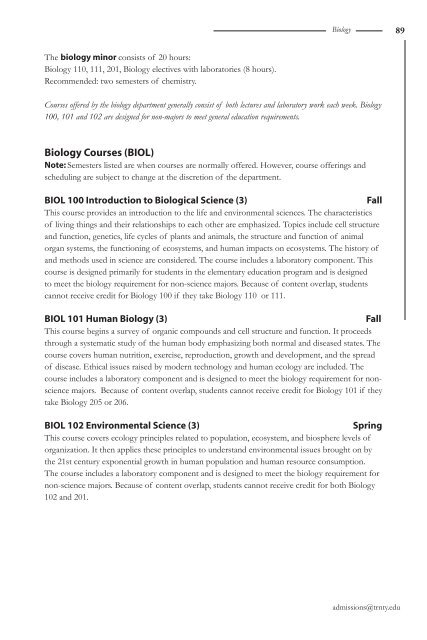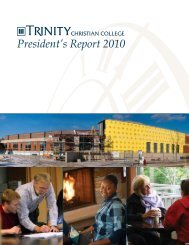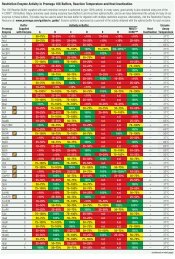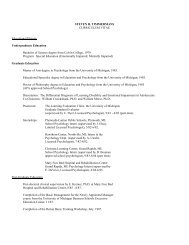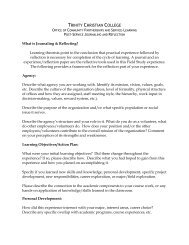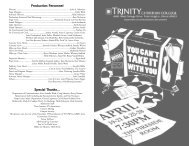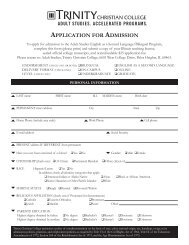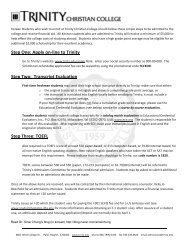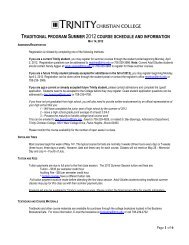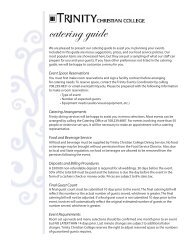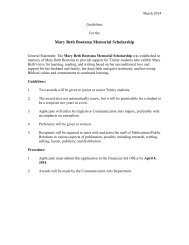College's catalog - Trinity Christian College
College's catalog - Trinity Christian College
College's catalog - Trinity Christian College
You also want an ePaper? Increase the reach of your titles
YUMPU automatically turns print PDFs into web optimized ePapers that Google loves.
Biology<br />
89<br />
The biology minor consists of 20 hours:<br />
Biology 110, 111, 201, Biology electives with laboratories (8 hours).<br />
Recommended: two semesters of chemistry.<br />
Courses offered by the biology department generally consist of both lectures and laboratory work each week. Biology<br />
100, 101 and 102 are designed for non-majors to meet general education requirements.<br />
Biology Courses (BIOL)<br />
Note: Semesters listed are when courses are normally offered. However, course offerings and<br />
scheduling are subject to change at the discretion of the department.<br />
BIOL 100 Introduction to Biological Science (3)<br />
Fall<br />
This course provides an introduction to the life and environmental sciences. The characteristics<br />
of living things and their relationships to each other are emphasized. Topics include cell structure<br />
and function, genetics, life cycles of plants and animals, the structure and function of animal<br />
organ systems, the functioning of ecosystems, and human impacts on ecosystems. The history of<br />
and methods used in science are considered. The course includes a laboratory component. This<br />
course is designed primarily for students in the elementary education program and is designed<br />
to meet the biology requirement for non-science majors. Because of content overlap, students<br />
cannot receive credit for Biology 100 if they take Biology 110 or 111.<br />
BIOL 101 Human Biology (3)<br />
Fall<br />
This course begins a survey of organic compounds and cell structure and function. It proceeds<br />
through a systematic study of the human body emphasizing both normal and diseased states. The<br />
course covers human nutrition, exercise, reproduction, growth and development, and the spread<br />
of disease. Ethical issues raised by modern technology and human ecology are included. The<br />
course includes a laboratory component and is designed to meet the biology requirement for nonscience<br />
majors. Because of content overlap, students cannot receive credit for Biology 101 if they<br />
take Biology 205 or 206.<br />
BIOL 102 Environmental Science (3)<br />
Spring<br />
This course covers ecology principles related to population, ecosystem, and biosphere levels of<br />
organization. It then applies these principles to understand environmental issues brought on by<br />
the 21st century exponential growth in human population and human resource consumption.<br />
The course includes a laboratory component and is designed to meet the biology requirement for<br />
non-science majors. Because of content overlap, students cannot receive credit for both Biology<br />
102 and 201.<br />
admissions@trnty.edu


